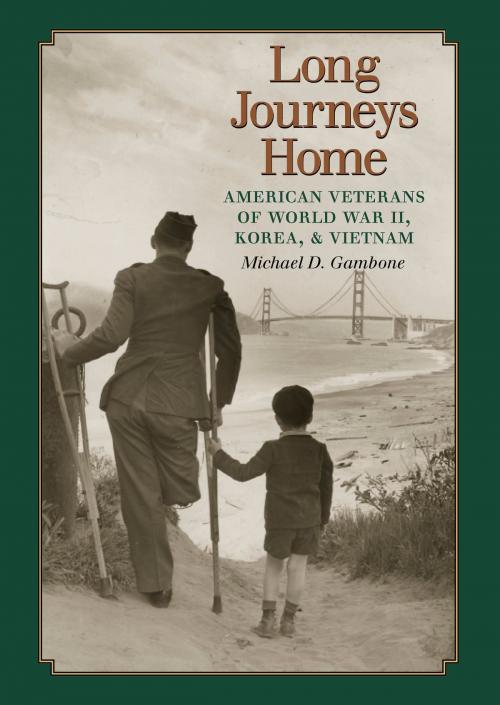Long Journeys Home
American Veterans of World War II, Korea, and Vietnam
Nonfiction, History, Asian, Korean War, Military, Veterans, World War II| Author: | Michael D. Gambone | ISBN: | 9781623495817 |
| Publisher: | Texas A&M University Press | Publication: | December 1, 2017 |
| Imprint: | Texas A&M University Press | Language: | English |
| Author: | Michael D. Gambone |
| ISBN: | 9781623495817 |
| Publisher: | Texas A&M University Press |
| Publication: | December 1, 2017 |
| Imprint: | Texas A&M University Press |
| Language: | English |
In the modern history of American veterans, it is sometimes difficult to separate myth from fact. The men and women who served in World War II are routinely praised as heroes; the “Greatest Generation,” after all, triumphed over fascism and successfully reentered postwar society. Veterans of the Vietnam War, on the other hand, occupy a different thread in the postwar narrative, sometimes as a threat to society but usually as victims of it; these vets returned home to a combination of disdain, fear, and prolonged suffering. And until very recently, both the public and historians have largely overlooked veterans of the Korean War altogether; the hit television show M*A*S*H was set in Korea but was more about Vietnam.
Long Journeys Home explores the veteran experience of World War II, Korea, and Vietnam. It examines and dissects the various myths that have grown up around each of these wars. Author Michael D. Gambone compares and contrasts the basic elements of each narrative, including the factors that influenced the decision to enlist, the impact of combat on life after the war, the struggles of postwar economic adjustment, and participation in (or withdrawal from) social and political activism.
Gambone does not treat these veterans monolithically but instead puts each era’s veterans in historical context. He also explores the nuances of race, gender, and class. Despite many differences, some obvious and some not, Gambone nonetheless finds a great deal of continuity, and ultimately concludes that Korean and Vietnam veterans have much more in common with the Greatest Generation than was previously understood.
In the modern history of American veterans, it is sometimes difficult to separate myth from fact. The men and women who served in World War II are routinely praised as heroes; the “Greatest Generation,” after all, triumphed over fascism and successfully reentered postwar society. Veterans of the Vietnam War, on the other hand, occupy a different thread in the postwar narrative, sometimes as a threat to society but usually as victims of it; these vets returned home to a combination of disdain, fear, and prolonged suffering. And until very recently, both the public and historians have largely overlooked veterans of the Korean War altogether; the hit television show M*A*S*H was set in Korea but was more about Vietnam.
Long Journeys Home explores the veteran experience of World War II, Korea, and Vietnam. It examines and dissects the various myths that have grown up around each of these wars. Author Michael D. Gambone compares and contrasts the basic elements of each narrative, including the factors that influenced the decision to enlist, the impact of combat on life after the war, the struggles of postwar economic adjustment, and participation in (or withdrawal from) social and political activism.
Gambone does not treat these veterans monolithically but instead puts each era’s veterans in historical context. He also explores the nuances of race, gender, and class. Despite many differences, some obvious and some not, Gambone nonetheless finds a great deal of continuity, and ultimately concludes that Korean and Vietnam veterans have much more in common with the Greatest Generation than was previously understood.















